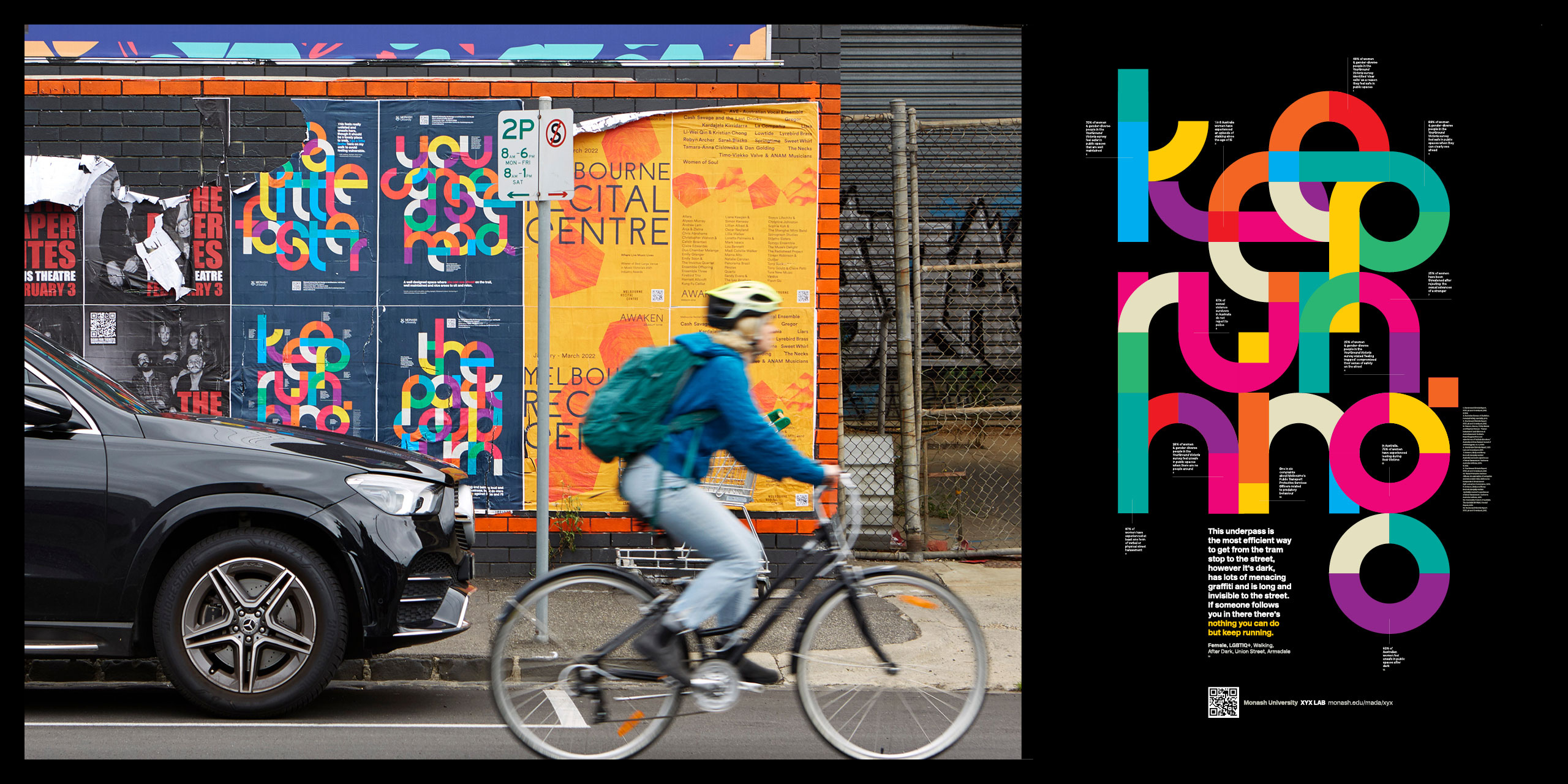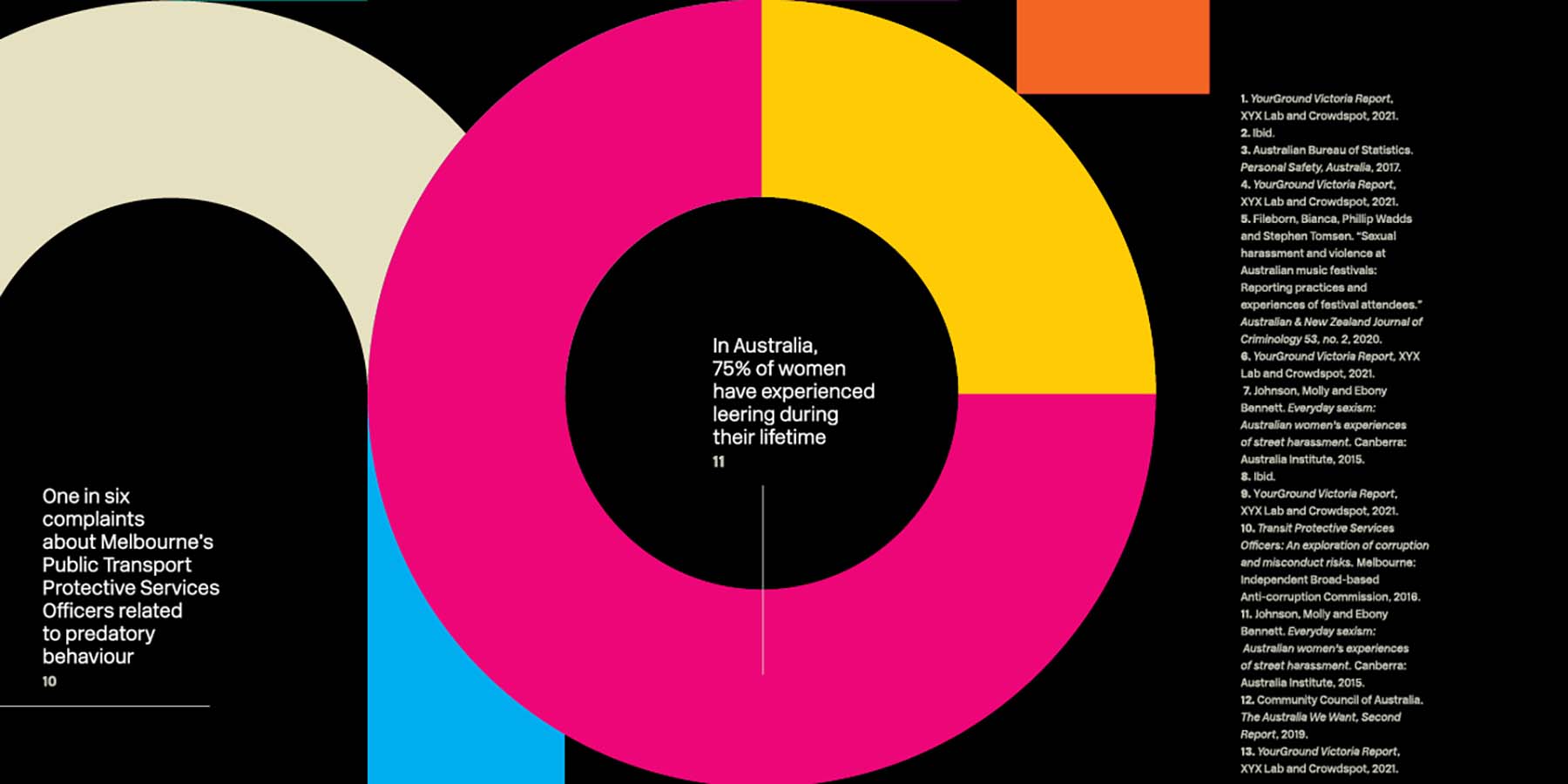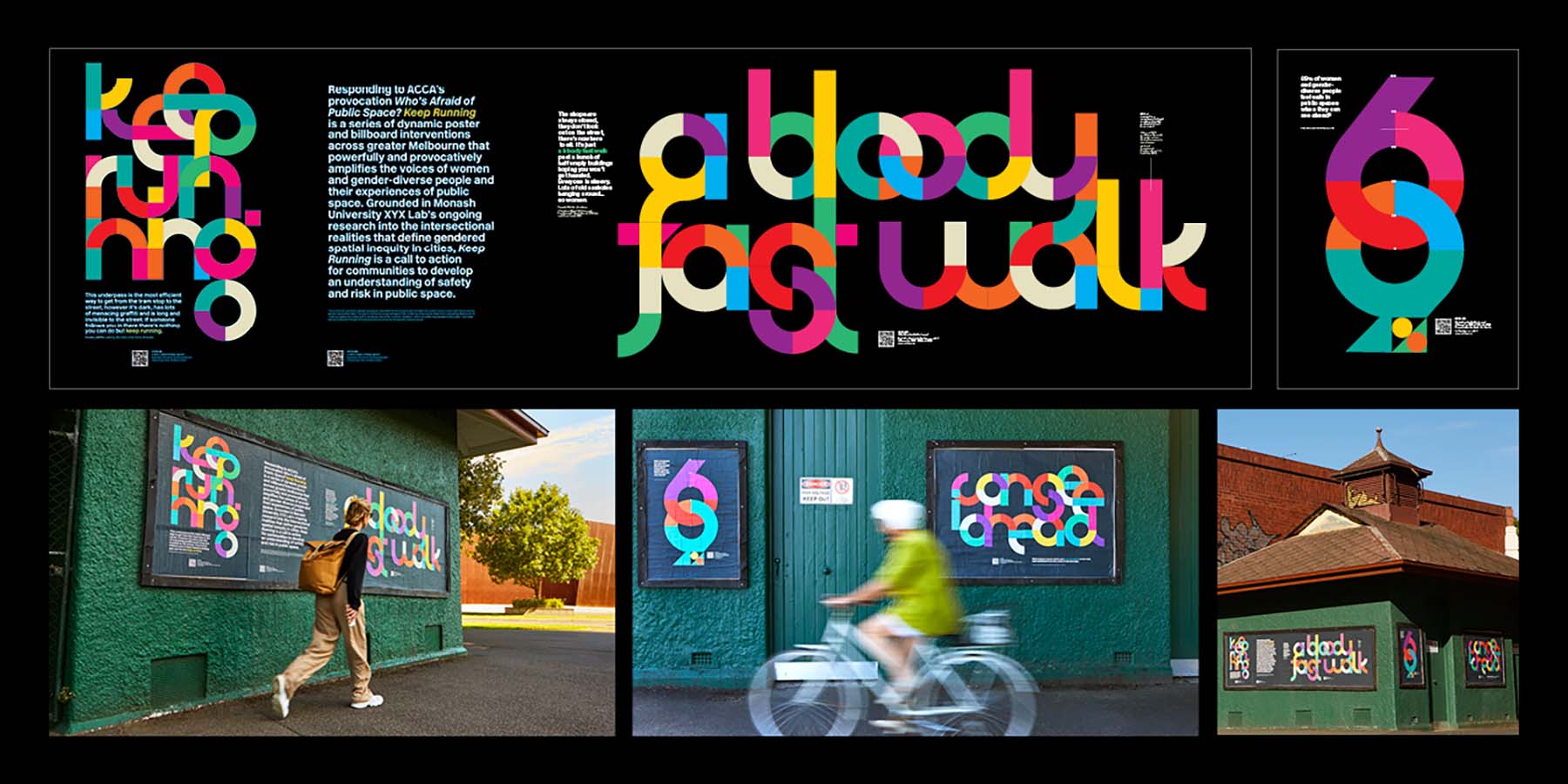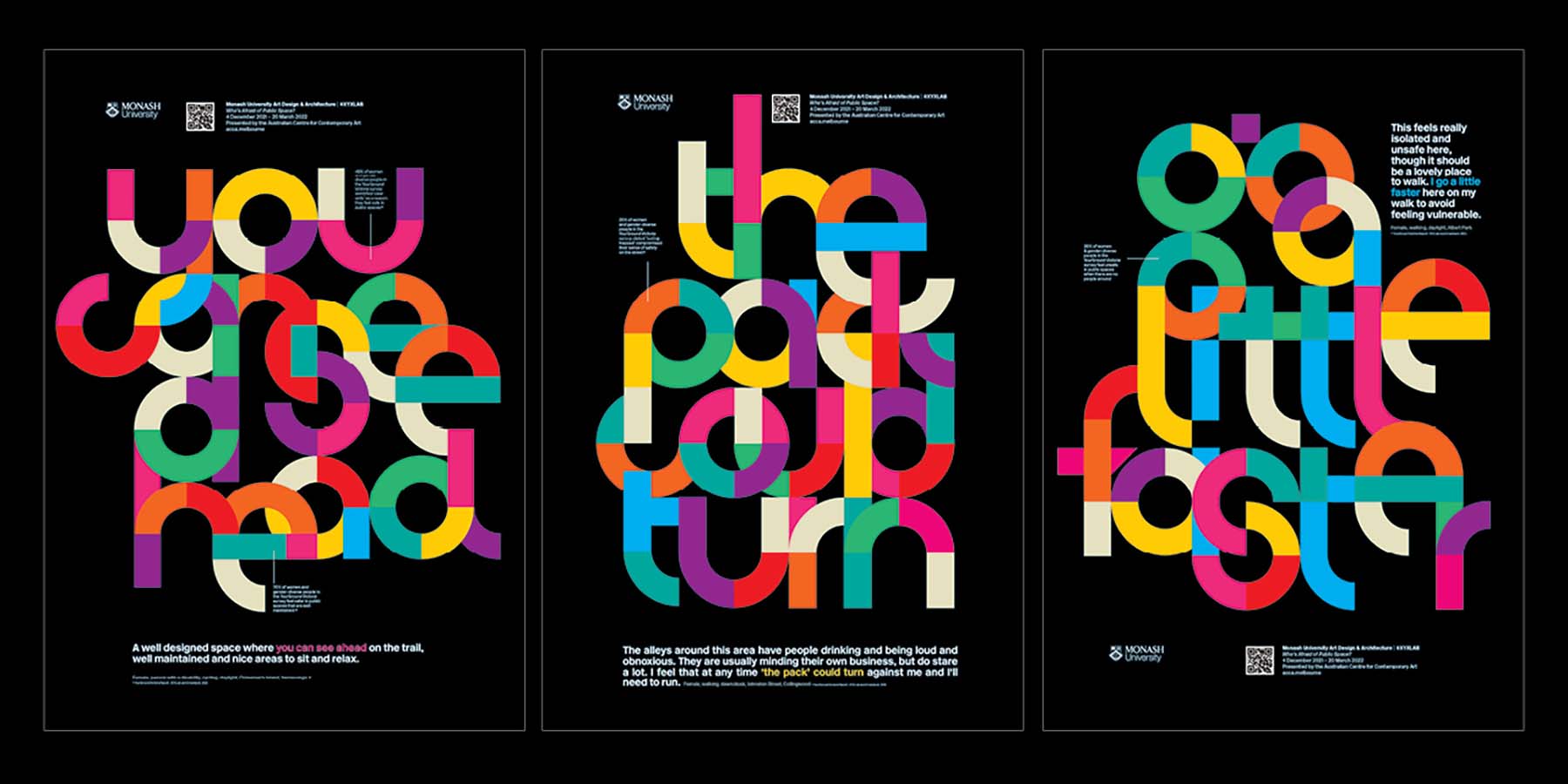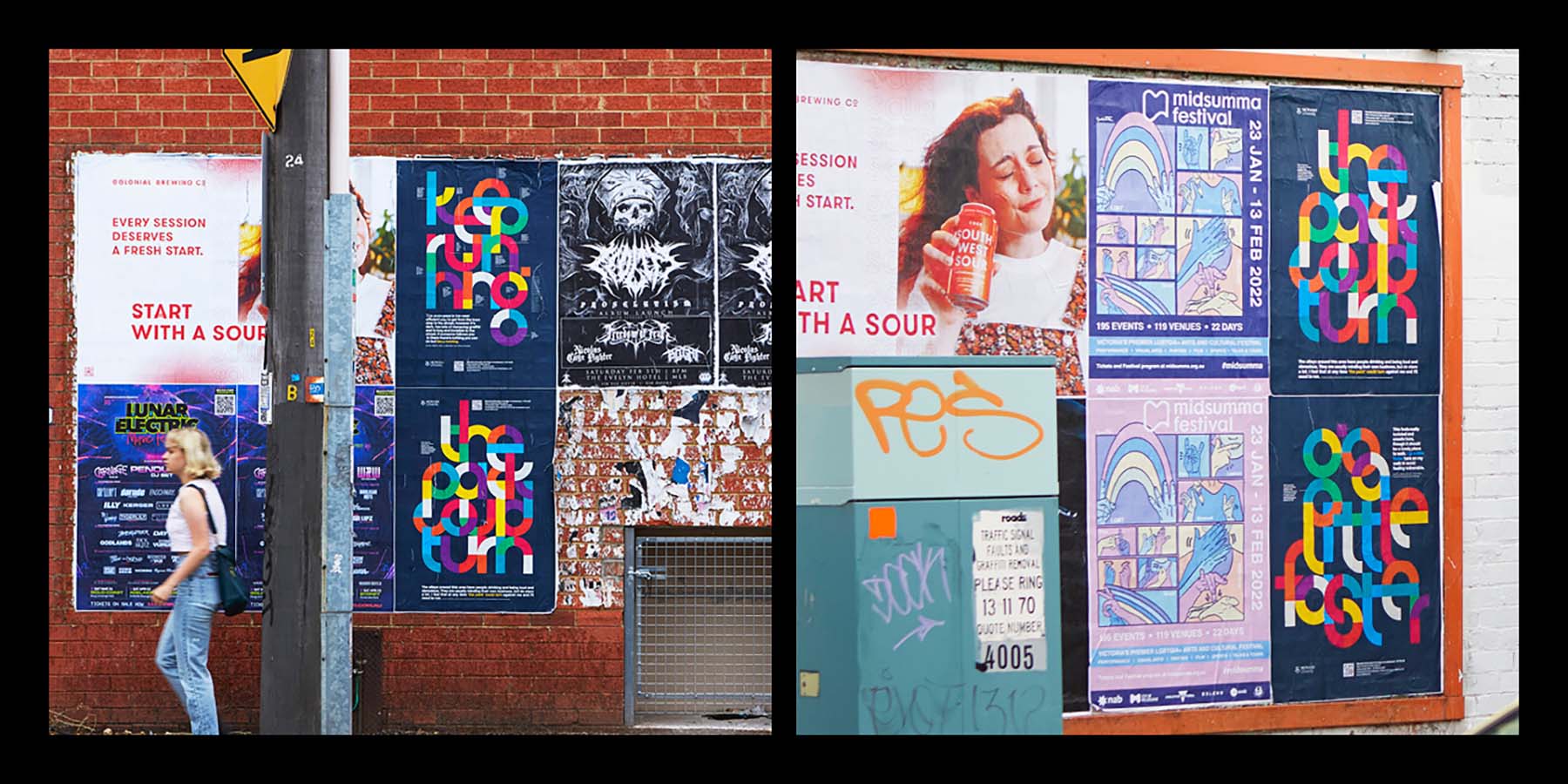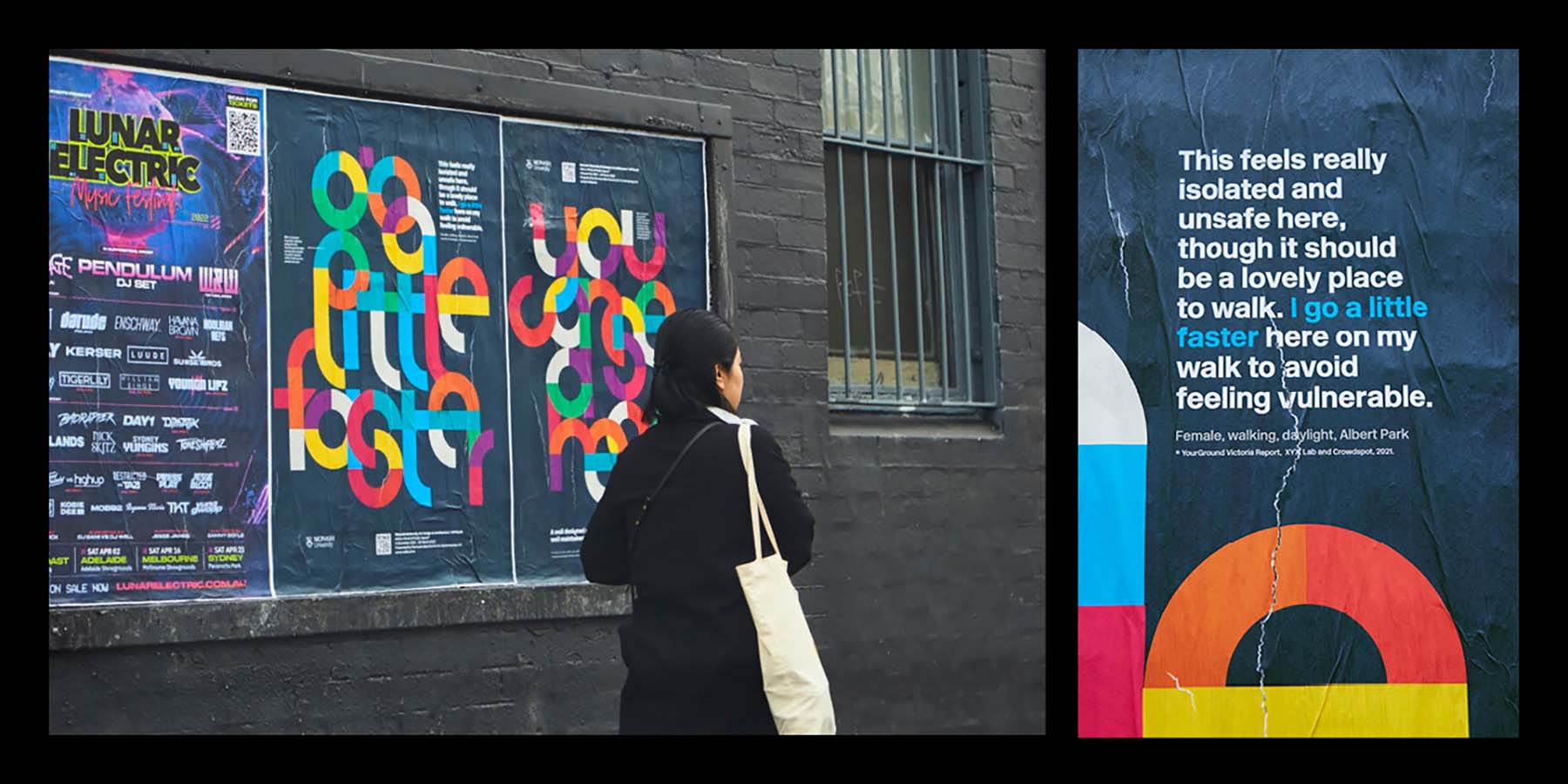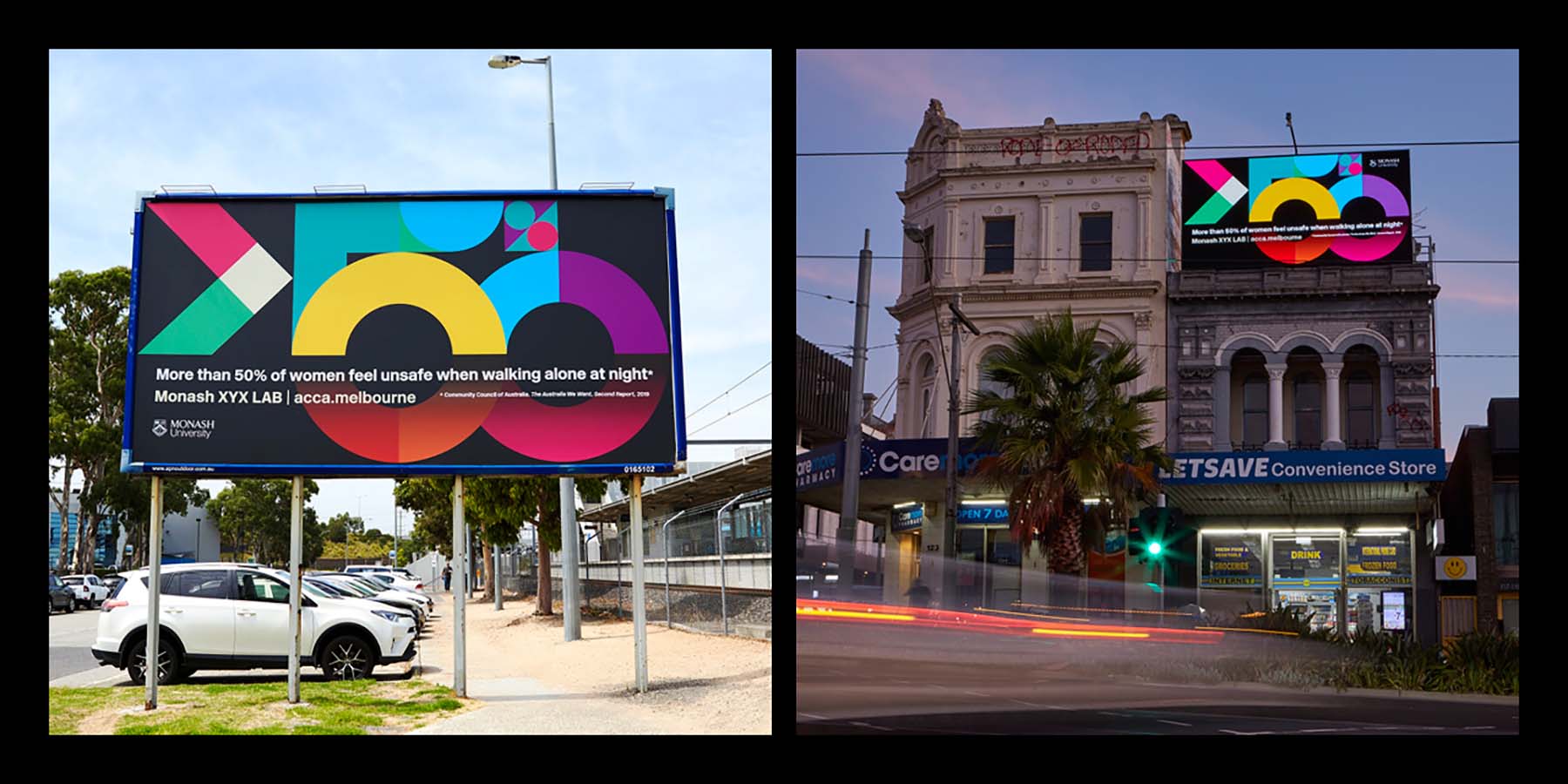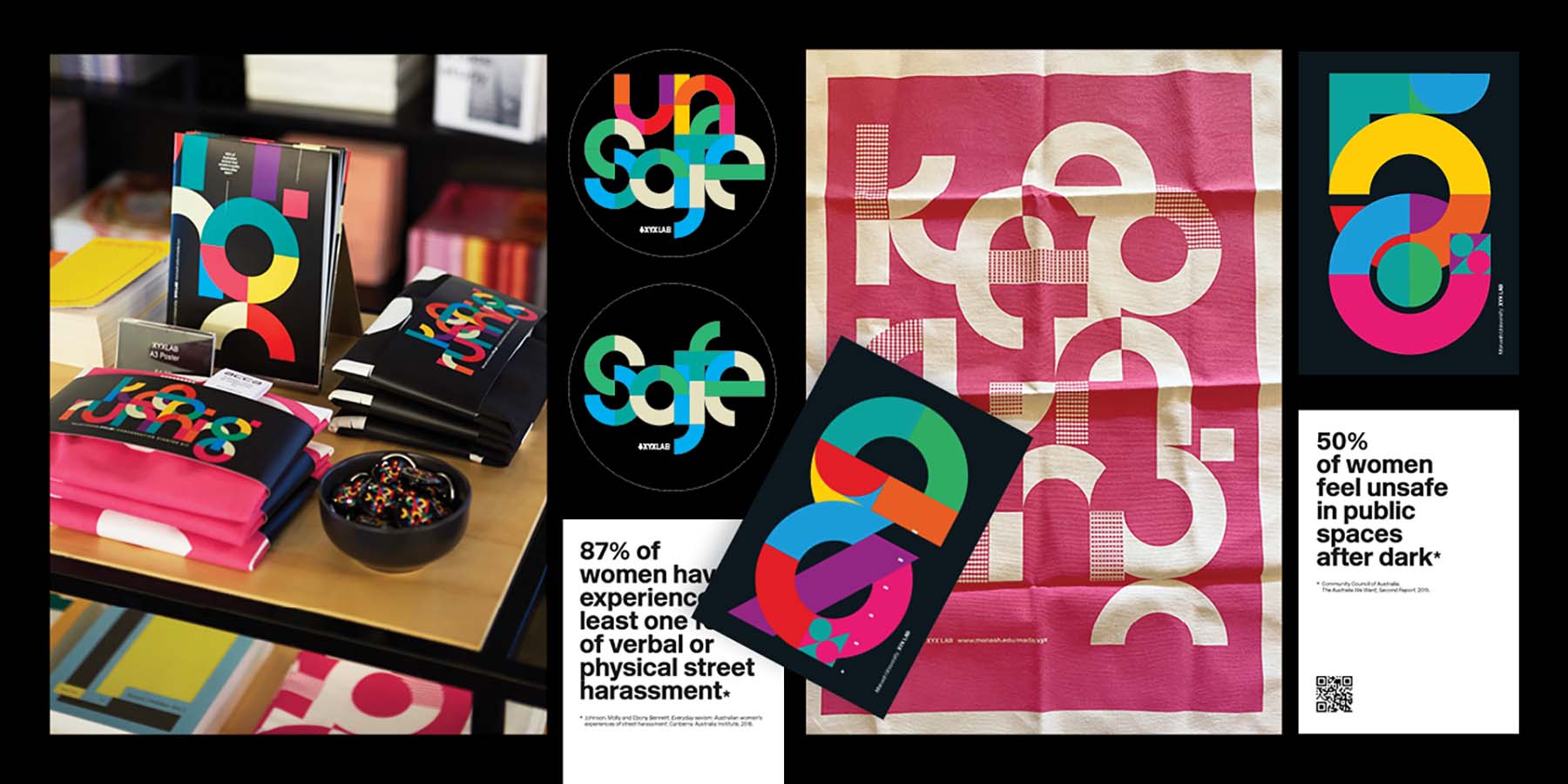The design process began in a previous research project, 'YourGround'. This project (in collaboration with geolocation mapping specialists CrowdSpot and 23 local government authorities) revealed real-time data that responded to how safe or unsafe women and gender diverse people felt while exercising, or simply being, in Victoria's outside public spaces. Women and gender diverse people were asked across the state to contribute to the 'YourGround' project, simply by identifying the spaces in which they felt safe or otherwise. While it revealed significant statistical data on safety, the platform also prompted participants to identify why they felt the way they did through personal narratives of their experience. This is key to understanding women and gender diverse people’s nuanced and frequently problematic engagement with public space.
Data, when it remains a statistical analysis, can provide evidence that change should occur, but does not necessarily indicate what needs to change. It is the personal stories that lie beneath the statistics that genuinely reveal what interventions need to occur and where. The somewhat abstract, depersonalised, quantified statistic is made more visceral and urgent by revealing the personal stories that help explain why a space feels safe or unsafe. By sifting through the stories from the 'YourGround' data, we were able to select key messages that reflected those of many who experienced similar challenges while traversing Victoria's public spaces. The stories personalise the data and identify the powerful ‘felt’ experiences that can frequently be lost in the anonymous and detached statistical data that resides in (frequently inaccessible) reports and journals. Through utilising public facing and inexpensive urban paste-ups we could both tell relational stories and reveal the data that they pertain to, to a broad audience of city users, in the spaces that harassment occurs.

